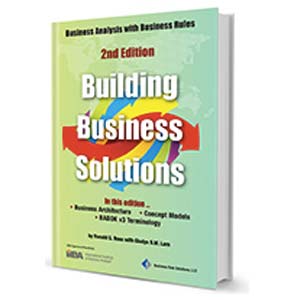Q4: Business Rules and Business Analysis
Question: What role should business rules play in business analysis?
You need business rules to run the business. You would need business rules even if you had no systems.
So it makes sense that business rules should be captured and expressed in a form that business people and subject matter experts can understand. That way they can ensure the business rules are correct. If you are designing systems - and that's usually the case - there's simply no point implementing rules that are incorrect. So the Manifesto says ...
5.1 Business rules should be expressed in such a way that they can be validated for correctness by business people.
Validation and correctness, however, are not the only focus for business analysis with business rules. Another is whether each rule can be justified as being truly productive for the business. Businesses often accrue so many rules over time (include 'exceptions' in that!) their spiraling complexity results in rapidly diminishing returns.
So the cost-effectiveness of every business rule should be assessed, at least informally. To do so, first you must recognize that there is cost associated with each rule. The Manifesto states that principle explicitly ...
8.2 Rules always cost the business something.
A rule's true cost, however, might not be exactly what you think - e.g., platforming costs may be relatively insignificant. Instead, the principal cost of most rules is organizational. Rules must be documented. They must be taught to new hires. They must be explained to external parties. All these things take time - and time is money. Also note carefully: This overhead doesn't decrease with each additional rule - it increases. The more rules, the more complexity.
The Manifesto in no way suggests that more rules is better. Just the opposite; it emphasizes that a smaller number of good rules is always better. Better to start with a smaller number, then add more as you go. The Manifesto states the principle this way ...
References:
[1] The Manifesto is free, only 2 pages long, translated into 15 languages. Have a quick look (or re-look!). No sign up required. Well worth your time.
About our Contributor:
Online Interactive Training Series
In response to a great many requests, Business Rule Solutions now offers at-a-distance learning options. No travel, no backlogs, no hassles. Same great instructors, but with schedules, content and pricing designed to meet the special needs of busy professionals.











